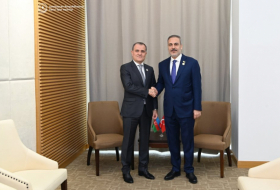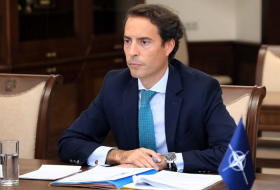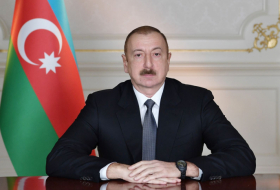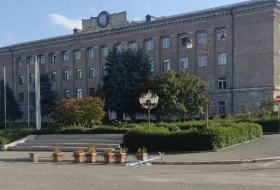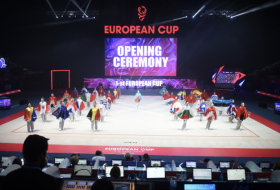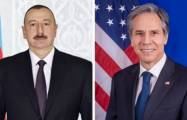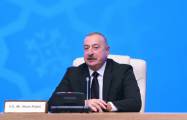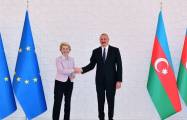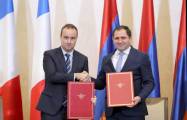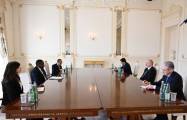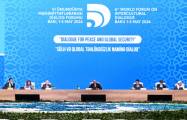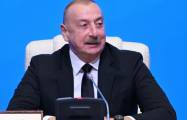Sir Tim Barrow appointed as Britain`s EU ambassador

The decision means the prime minister has ignored calls to appoint a wholehearted Brexiter, in a move that will reassure those in the civil service who feared the role would be politicized.
Rogers, the head of UKRep – in effect the British embassy in Brussels – resigned in frustration on Tuesday, urging fellow civil servants to continue to provide impartial advice, and stand up to “ill-founded arguments and muddled thinking”.
He also made clear he thought the UK government not only lacked an agreed exit strategy, but also a coherent negotiating team.
An outspoken attack on Rogers’s impartiality by former Conservative ministers had led to growing anger among some senior civil servants, with some privately claiming they were considering stepping down.
Downing Street’s decision to replace Rogers so quickly is partly because of the urgent need to prepare for Brexit talks, but is also likely to reduce unease after the resignation highlighted wider strains between some mandarins and ministers, including those close to May.
Barrow was the UK ambassador to Moscow until 2015 and in March 2016 succeeded Sir Simon Gass as political director at the Foreign Office. He has extensive European experience and acted as first secretary at UKRep. His appointment is also a victory for the Foreign Office, which lost the UKRep post to former Treasury officials in 2012.
EU sources were surprised by the speed of the decision to appoint Barrow, with one claiming it revealed the pressure on the UK government. “It shows anxiety,” they said. Officials checking Barrow’s CV noted his experience in Brussels covered security and foreign policy, but not many of the technical subjects that will be in play during the Brexit talks, such as financial services or free movement of people.
Barrow said: “I am honoured to be appointed as the UK’s permanent representative to the EU at this crucial time. I look forward to joining the strong leadership team at UKRep to ensure we get the right outcome for the United Kingdom as we leave the EU.”
A Downing Street spokesperson called the senior official “a seasoned and tough negotiator, with extensive experience of securing UK objectives in Brussels”. They added: “He will bring his trademark energy and creativity to this job, working alongside other senior officials and ministers to make a success of Brexit.”
One Whitehall source described Barrow as a “quintessential diplomat”, calling him the second most powerful man in the Foreign Office who had worked closely with the foreign secretary, Boris Johnson.
They suggested the speed of the appointment was testament to the strong support from May. Johnson and David Davis, the Brexit secretary, who said Barrow’s “knowledge of Brussels means he will be able to hit the ground running at a vital time”.
Others suggested Barrow was not a “remoaner”, suggesting that he may well have voted to remain in the EU but was now optimistic about Britain’s opportunities outside the EU.
Barrow’s appointment came as May prepares to deliver a major speech on Brexit this month when she will restate that control of borders will be a red line for the government, inevitably making economic access a lower priority.
That means the government must be prepared for Britain to stop being a full member of the single market, although the prime minister has said she has an objective to secure maximum access for companies to trade with the EU.
The appointment of another mandarin to the role led to anger from some staunch Brexiters who wanted to see a political appointment instead.
Nigel Farage, the former Ukip leader, tweeted:
Gerard Batten, the Ukip MP, described the decision as a disappointment because it represented “another career diplomat wearing a Brussels jersey”.
He said the Foreign Office needed a “revolutionary shakeup” that saw all civil servants removed from such roles in Brussels and some other key positions in government. “In their place, we need committed and sincere Brexiteers, people who actually want Britain to leave the EU and are prepared to make it happen,” he said.
But other high profile leave supporters disagreed. The former cabinet minister Iain Duncan Smith told the Guardian that the question was not whether someone had voted for or against Brexit but whether they were “determined to find a way of getting the job done”.
He particularly welcomed the replacement of a Treasury official with a Foreign Office man. “I think the Foreign Office will breathe a sigh of relief because they were driven out of the role by the Treasury, and the Treasury has become quite powerful,” he said.
Duncan Smith argued that civil servants in most government departments had accepted the need to make Brexit into a success. “The problem in government has become the Treasury, which wants to fight a rearguard action,” he added.
However, the former minister was clear that he was not referring to the chancellor, Philip Hammond, who appointed Barrow as political director when he was foreign secretary and knows him very well.
The shadow Brexit secretary, Keir Starmer, welcomed the quick appointment of an experienced figure with a distinguished record, insisting there could not be a vacuum in the role. But he said he would still push for an urgent statement in parliament because of the questions thrown up by Rogers’s departure, including the official’s claim that the government did not have a negotiating strategy.
“This doesn’t remove urgent questions about the lack of a plan for Brexit, the lack of preparedness for negotiations and a lack of accountability,” said Starmer.
Tim Farron, the Liberal Democrat leader, added: “The new ambassador can be at his most diplomatic but without a plan from this government on where it stands on the big issues, such as Britain’s membership of the single market, then it is an impossible task.”
The appointment of an ambassador is different from choosing a permanent secretary – or top civil servant – in a department, and does not require the exhaustive process of other Whitehall public appointments.
Downing Street would have been aware that Rogers was likely to stand down in the autumn and Whitehall will have been thinking of a replacement for some time.
Tom Fletcher, the former UK ambassador to Lebanon, tweeted in response:
Barrow’s appointment is also likely to be seen as a vote of confidence by May in the impartiality of the civil service.
Eurosceptics have been pressing for the appointment of someone willing to consider the possibility of leaving the EU without a full deal on a future relationship with Brussels. They say they want someone who is not transfixed by the complexities of the task.
Some had even called for the Conservative MEP Daniel Hannan to be handed the job of negotiating the UK’s exit.
The head of the civil service, Sir Jeremy Heywood, would have resisted calls for a politician to be handed the plum post, although ambassadors have occasionally been appointed from outside the core civil service network.
Heywood will be aware that Brexit has been putting the civil service’s reputation for impartiality under unprecedented threat.
Duncan Smith had accused Rogers of leaking against ministers and claimed he had lost the trust of Conservative politicians. There is no evidence that Rogers was responsible for the recent leaks, one of which appeared to damage his standing in Downing Street.
In that politicised context, Heywood will have known any decision by May to appoint someone from outside Whitehall would be seen as a resounding vote of no confidence in the impartiality of the civil service. There was anger in Whitehall and among former diplomats at ministers’ refusal to speak out in defence of Rogers.
But Barrow will have to race to gather knowledge not only of the thinking inside the commission negotiating team led by Michel Barnier, but also how to drive a wedge into the EU’s surface unity by locating British allies in key European capitals. It was argued, fairly or not, that Rogers would not try hard enough to insert those wedges, focusing too much on Germany and France.
Fortunately for Barrow there is a sort of political interregnum in Europe through much of this year, as elections are held in France, the Netherlands and Germany.











